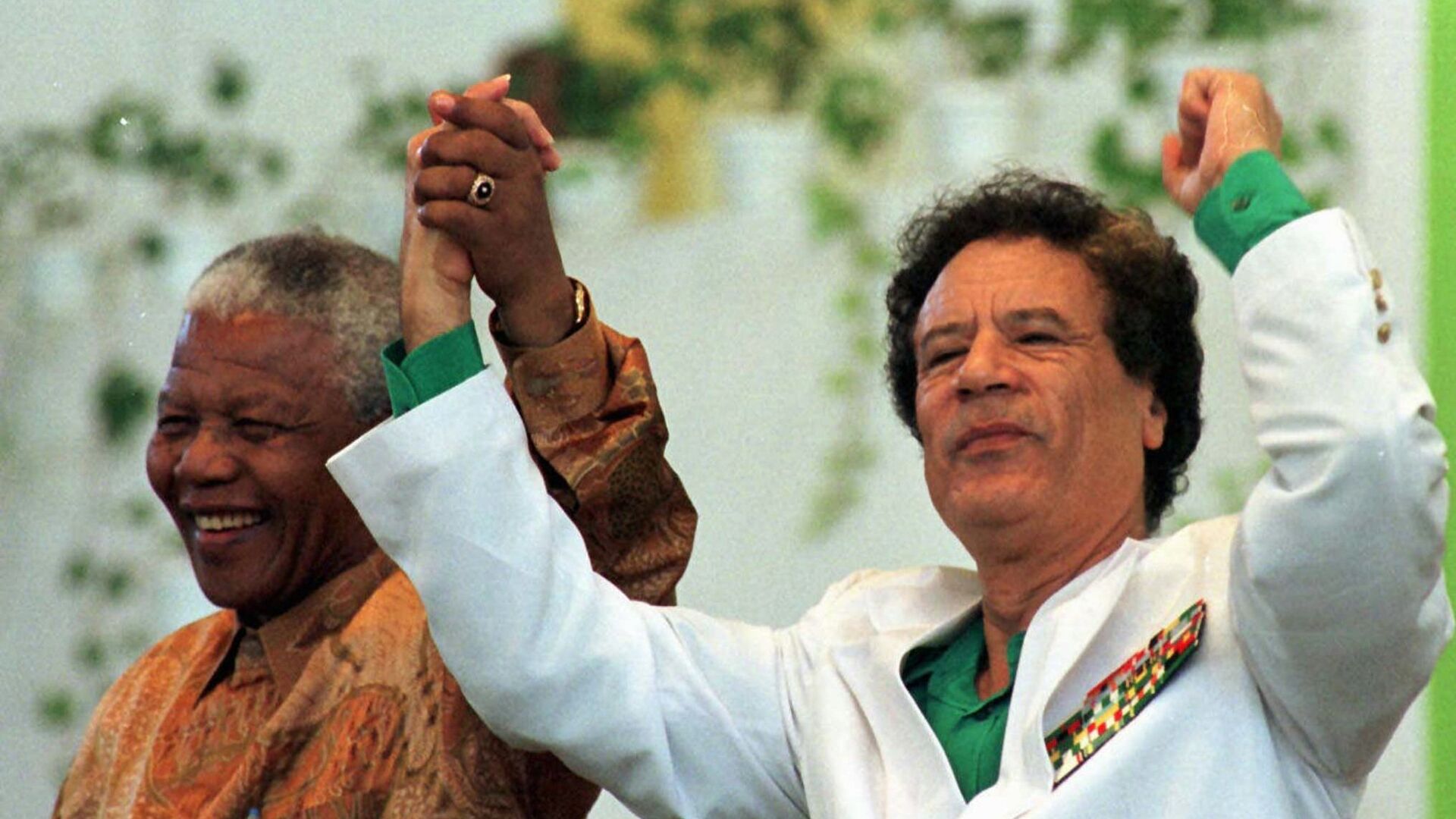Ten Years Since Libya’s Gaddafi Was Murdered by NATO-Backed Rebels
01:16 GMT 21.10.2021 (Updated: 17:04 GMT 31.07.2023)

Subscribe
October 20, 2021, marks ten years since the revolutionary leader of Libya Muammar Gaddafi was killed by rebel forces who had overthrown his government with extensive support from NATO forces. A decade later, what had been Africa’s most prosperous nation is fractured and crumbling.
"Before 2011, Libyans were the masters of their destiny. Since then we've seen 10 years of injustice, bombing, killing and kidnapping," Mohammad Abi Hamra, a resident of Bani Walid, told France 24 on Wednesday.
"Revolution is meant to bring change for the better. But what has happened since 2011 hasn't been a real revolution, it has been a conspiracy against Libya," he added.
The town of 85,000 remained loyal to Gaddafi to the end, and support for his legacy remains strong in the city. Today, they support one of the late leader’s sons, Saif al-Islam, who entered the running last month for the Libyan presidency, to be decided in elections at the end of the year.
However, a decade of civil war has made the position essentially meaningless. In the west, the UN-approved Government of National Accord under Fayez al-Sarraj rules from the traditional capital of Tripoli, while the east is dominated by the Libyan National Army under the command of Field Marshal Khalifa Haftar, whose base is in the fortress of Tobruk, near the Egyptian border.
Gaddafi came to power in 1969 in a coup d’etat that overthrew the monarchy of King Idris, which was supported by the former colonial power Italy and the Greek dictatorship of Georgios Papadopoulos. While motivated by Arab socialism, they rejected Marxism-Leninism due to its atheism and instead incorporated significant socialist elements into an Islamic government of direct democracy, which Gaddafi ultimately named the Great Socialist People's Libyan Arab Jamahiriya. However, Gaddafi remained its titular leader and representative on the global stage.
Misrata tripole street #Libya 2007(Before Ghaddafi's overthrow) & 2011(After Ghaddafi's overthrow). pic.twitter.com/EnyGLIyXAj
— Edward (@DonKlericuzio) January 23, 2016
Based upon nationalization of the country’s massive oil wealth, Libya under Gaddafi implemented extensive social welfare programs including free education, healthcare, electricity, and even interest-free loans. Having a home was considered a human right. Libya went from a backwards backwater to a rich, educated, urban society.
Not only was Libya debt-free, but it helped other African countries to escape their debts to European nations and to institutions like the International Monetary Fund, which requires lendees to restructure their economies along neoliberal, free market lines. A committed pan-Africanist, Gaddafi helped establish the African Union and was laying the groundwork for a separate African central bank.
Gaddafi’s 42-year-rule was brought to a swift end in early 2011, when protests supported by the West erupted early on during the Arab Spring uprisings, which had begun in nearby Tunisia. When those protests turned to armed revolt, and the Libyan military responded in kind, NATO quickly organized air and cruise missile strikes that gave the rebels the upper hand.
By October 20, Gaddafi only controlled a small area around his hometown of Sirte. After his convoy was attacked by NATO aircraft, he sought cover in a protected culvert, where he was found. On live video, the revolutionary leader was beaten by his rebel captors and sodomized with a bayonet before he died. His body was frozen for several days, to confirm that he was really dead.
Later that day, then-US Secretary of State Hillary Clinton was informed of Gaddafi’s death during an interview. "We came, we saw, he died," she cackled, imitating the boast by the ancient Roman conqueror Julius Caesar after conquering the Kingdom of Pontus in 47 BCE.
Today, Libya’s once-glorious cities lie in ruins, the houses that every citizen was once entitled to are bombed out concrete hulks. Open-air slave markets have brought human trafficking on a horrific scale as migrants fleeing conflicts across Africa try to risk a water crossing to Europe. Daesh* and other terrorist groups have flourished in the chaos, seizing the country’s remote desert interior and spreading across much of West Africa.
*A terrorist group banned in Russia and many other states



